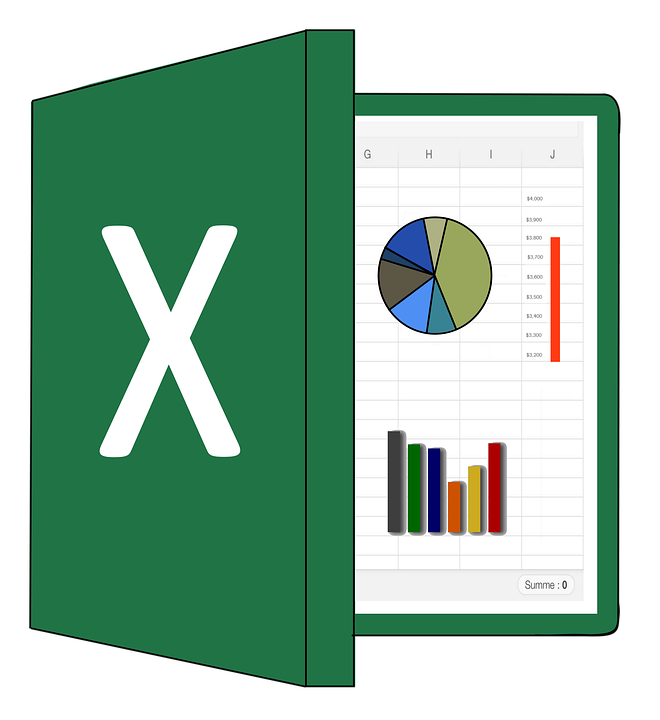
8 Top Notch Information Resources for Small Businesses
As a small business owner and content creator, I’m always looking for resources that will help me improve my own business, and provide insight into the latest developments, innovations, tools and guidance on financial and tax matters. Over time, I have bookmarked a list of the resources that I visit frequently

4 Alternatives for Preparing Your Small Business Payroll
Paying salaries to employees (or yourself) requires more than just determining the gross amount to be paid. The Canada Revenue Agency and Revenue Quebec require that employers calculate a variety of taxes on the salaries paid, remit them to the federal and provincial governments and prepare annual reports demonstrating that the calculations are correct and all salary deductions have been paid. This can be a lot of work for business owners whose time is better spent generating sales and building their businesses. Luckily there are many options for small business owners to calculate their payroll and salary remittances, many of which simplify the process:

19 Features to Consider When Selecting Small Business Accounting Software
A good accounting software can be an invaluable tool for businesses. Before choosing an accounting software it helps to have a detailed understanding of what your accounting system can do for you . This involves analysing the key aspects of your business, determining what is essential (eg. invoicing, expenses, banking, reports) and what you would like to have (eg. time tracking, credit card payments, banking downloads etc.). By reviewing your requirements in advance and building a checklist, you can make a better decision about something that goes to the very foundation of your business. Below are some important features to consider:

10 Payment Alternatives to Help Small Businesses Get Paid Faster
One of the numerous ways in which technology has benefitted small businesses has been to increase the number of payment options available. While conventional methods of payment like cash and cheque still exist, there are also a variety of other options like debit cards, internet transfers and mobile payments that have greatly facilitated payment infrastructure and made financial management significantly more flexible. Every business owner must wade through the alternatives and decide what type of payment options are right for their customers. This is based on several factors including their industry, common practices, location and of course business specific considerations. For example, a retailer will usually allow for payment by credit and debit cards, cash and possibly some form of mobile payment. Conversely, a law office may not offer a credit card option, but request payments via cheque or bank transfer.

Should you use accounting software or a spreadsheet to track your small business finances?
Over the years my clients have come to me with their financial data in various formats. I have received shoeboxes of receipts which need to be deciphered and compiled. Some clients have given me their spreadsheets in excel, google or occasionally summaries in a word document. Others decided it made sense to use accounting software right at the outset of their businesses.
In many cases, using a spreadsheet is perfectly fine and sufficient for small business or self employed individuals where you simply need a way to determine your income and expenses. There are situations, especially when you are planning to do your own small business accounting, where it can be significantly beneficial to upgrade your record keeping from a spreadsheet to accounting software. I have enumerated some of the factors to consider when determining if your spreadsheet is enough for your accounting needs or whether it is time to upgrade.

Excel for Small Business Owners
As a confirmed excel nerd, there is something about large amounts of data that I am inextricably drawn towards . I suppose it has something to do with an affinity for organization combined with a love of numbers and the innate desire to solve problems. As an accountant and financial consultant , I am often presented with the task of organizing and analysing data into a format that allows for greater insight into my clients businesses . And although good accounting software is important for most small business owners, especially once they reach a certain size, a great deal of analysis and reporting is done most effectively in excel.

Should You Transition to a Paperless Office (and What CRA Has to Say about It)
Imagine having an office without clutter, free from sad looking boxes and filing cabinets filled to the brim, where you don’t have to rifle through unlabeled containers to find a receipt for a computer that you bought three years ago. . An office where you can make Marie Kondo proud by getting rid of (almost) anything that does not bring you joy and surrounding it instead with items that inspire (or at least improve productivity). This is all possible with a few apps, sufficient digital space and a shift in your mindset and processes.

3 Tools that allow you to Remotely Connect to your Computer from Anywhere
The past few years, and especially the last year has changed the way many business owners and employees work. There has been a mass adoption of virtual workspaces where people are no longer tethered to their offices. Instead the technology to make working from anywhere has increased and improved significantly and is accessible by anyone who has a working internet connection. Business can be conducted from your home, an airport, a café or (if you are lucky) on the beach.
While many software, apps and programs are available in the cloud and can directly be accessed directly from your computer or smartphone internet browser, there are times when you need access to your actual desktop or another computer so that you can access the programs and data files that reside there. Luckily, there are numerous tools out there that allow small business owners to remotely connect to their computers . Three of these are discussed below:

Tips and Tools for Working from Home
Having a home based business has many advantages - there's no wearying commute to and from work, our sleep schedule is not beholden to an alarm clock and it allows us to work, if we so choose, when we are at our most productive or creative. An additional benefit is that expenses relating to our home office are tax deductible. Working from home can, however, also present a unique set of challenges. Given the proximity of distractions including our beds, fridges , tvs and perhaps worst of all, our computers, it requires a great deal of discipline and focus to actually get any work done.

3 Online Accounting Software Options for Small Business
As cloud computing becomes ubiquitous, the number of cloud based online accounting software options continues to grow. Many small business owners want a software that has an intuitive and easy-to-use interface that allows them to bill customers, enter expenses, record bank transactions and generate financial statements and other reports,. We also want to be able to access the software from anywhere (you never know when the desire to do your accounting strikes!) and not be tied down to a specific location Below is a summary of 3 cost effective, multi functional alternatives :

How to Set Up a Small Business Accounting System
Many small business owners (myself included) tend to focus on the more glamourous aspects of their business eg. sales, marketing and product/service development. As a result, accounting often does not get the attention it deserves. In addition to the perception that an accounting system does not necessarily add value, it can also be a little intimidating. However, there are numerous benefits to setting up an accounting system and it can actually be fairly straightforward especially if you have some help with setting it up. A good accounting software tends to handle most of the complexity of accounting as long as the data is compiled and entered accurately.

Quickbooks Online Banking: Setting Up, Deleting Matched Transactions and Manually Uploading Web Connect or Excel Files
Is Wave Accounting Software a Good Fit Your Small Business
5 Notable Disclosures in Groupon’s Financial Statements and What They Mean.
Since Groupon first submitted its S-1 filing in June, 2011, there has been a wave of negative sentiment around Groupon’s upcoming IPO. Many analysts believe that not only is Groupon not a good investment at the approximate $20 Billion + that its IPO’s initial share price will value it at, but is in fact on the brink of insolvency. They are also some that do not believe that, in the long run, Groupon’s business model is profitable .
In an effort to determine whether Groupon is in fact a raging buy or, as alternatively presented, on the verge of insolvency, I have undertaken an analysis of their latest S-1 , which was filed with the SEC on August 10, 2011. The document, which is required by all companies who want to file an initial public offering, comprehensively reviews its operations, long term viability, business risks (which are numerous) and its financial condition. Some of the more interesting discoveries, as they relate to the 6 months ending June 30, 2011, are presented below:
